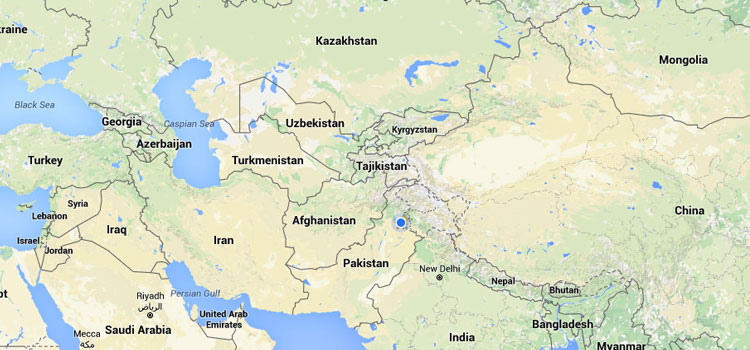
Pakistan, a country with over 185 million population and less than 13% internet penetration, is considered a struggling market for internet connectivity. But there’s no denying the fact that due to its geographical location, Pakistan has a lot to offer to the landlocked Central Asian states with crucial bandwidth access. This can turn Pakistan into the regional connectivity hub for entire Central Asia, according to a report released by ISOC today at the INet Conference in Islamabad.
Out of several Central Asian countries, such as Kazakhstan, Kirghizstan, Tajikistan, Turkmenistan, Uzbekistan and Afghanistan, Pakistan possesses the highest international connectivity in the region at 400Gbps. This is due to the fact that all the other countries are landlocked and depend heavily on Russia for their international internet connectivity of any sort.
Not to mention, these Central Asian countries have very low rate of international internet connectivity — Afghanistan, for example has less than 30Gbps international bandwidth with other countries even having lower bandwidth — which means Pakistan can not only tap a lucrative market but can also help internet uptake in these landlocked markets.
‘With its coastline and direct access to submarine cable landing points, low bandwidth cost and throughput, Pakistan sits in an enviable strategic position,’ said the ISOC report that was exclusively shared with mediamen today.
The report stated that Pakistan has all the potentials in place to bridge access to international submarine cables and provide greater bandwidth to region as a whole. Pakistan therefore can become a natural “Southern Route” to connect Central Asia to international networks.
If Pakistan fails to avail the opportunity then Iran can eventually step in to fill the role, which borders more Central Asia countries than Pakistan does, warned the report.
As one might imagine, before eyeing lucrative Central Asian countries, Pakistan will have to enable and expand access to its own population. With 400Gbps, Pakistan currently has 9Kbps bandwidth per individual in the country and this is exactly where Pakistan has to improve in order to be considered as the connectivity hub for Central Asian markets.
Also Read: Auction of 3G/4G Licenses was a Small Step Towards Digital Economy
ISOC said that any policy and regulatory choices — for better internet access within the country and beyond — are to be made now or Pakistan may lose the opportunity altogether.
If Pakistan is able to capitalize on its strategic geographical location and position itself as a service provider of international bandwidth to its land-locked neighbors, it will consolidate these early transitional developments and help accelerate transformation of the local digital economy.
Further Notes: Pakistan is to get 24 tera bits per second (Tbps) through I-ME-WE-5 submarine cable to enhance country’s international bandwidth by 600%.